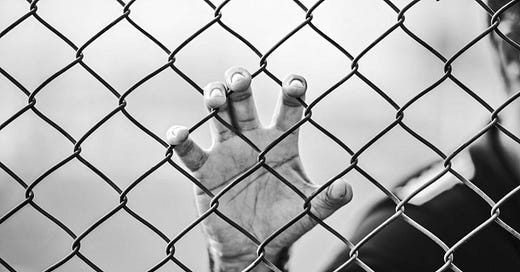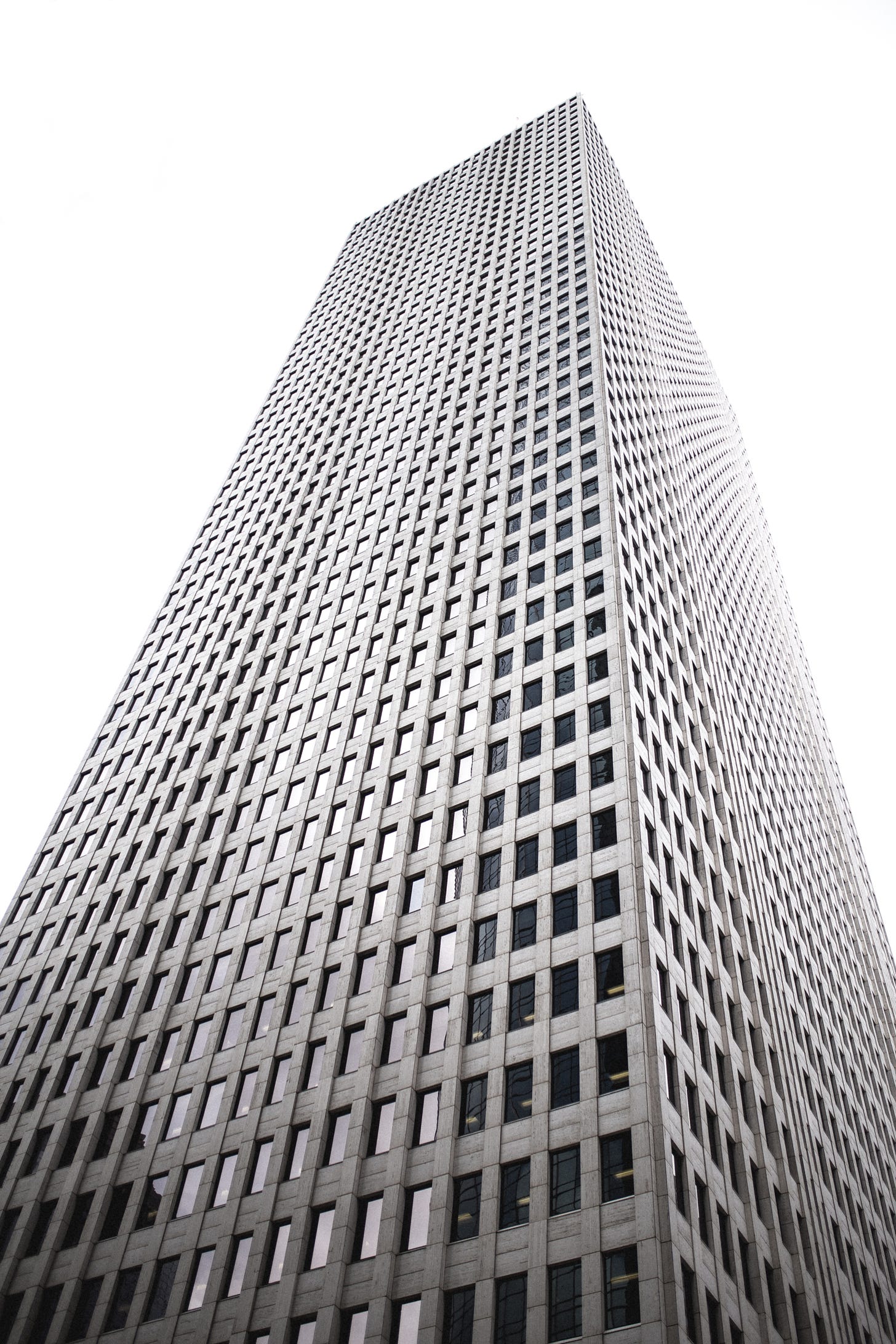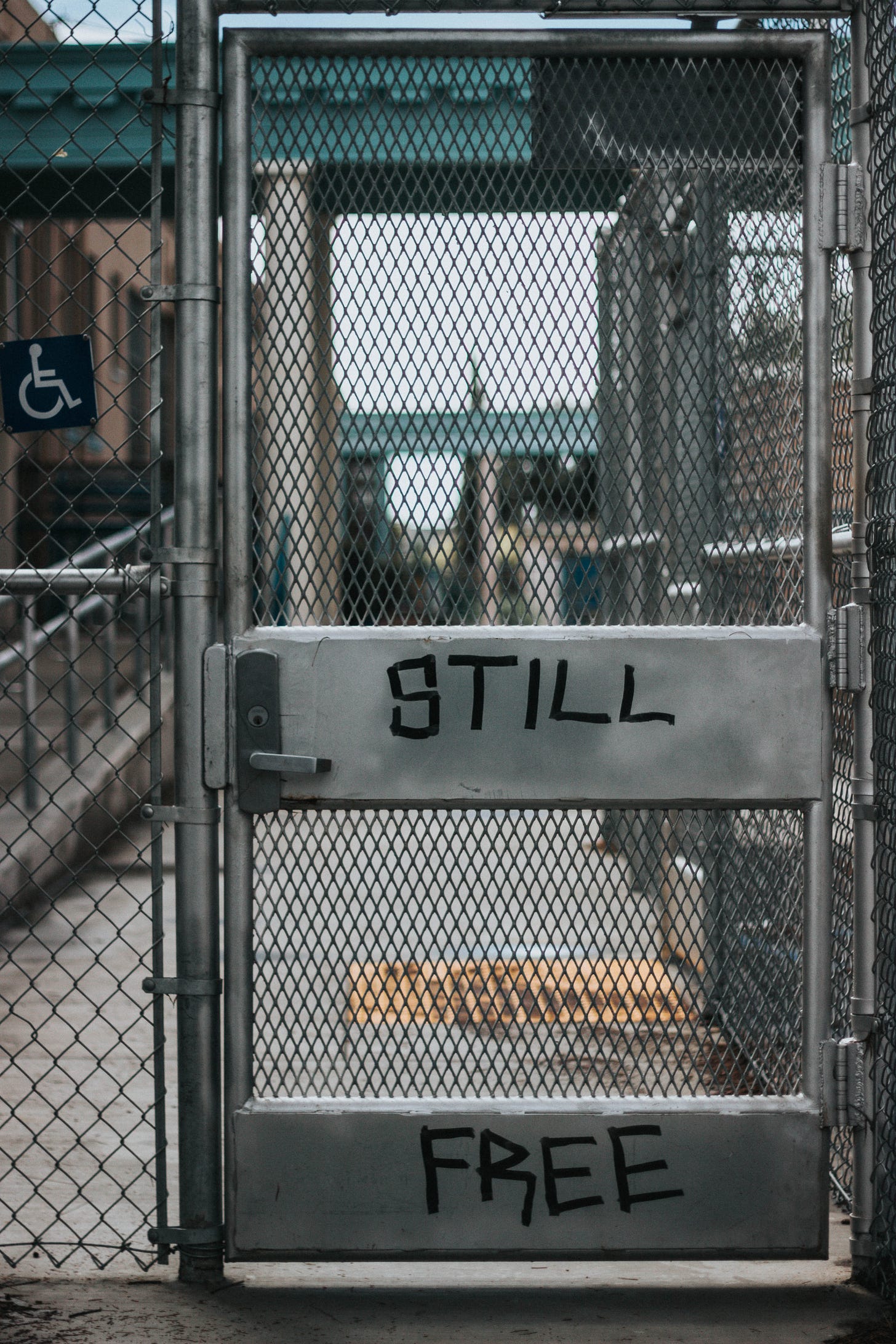Amid ongoing and very necessary discussions on the merits of defunding or not defunding the police, I promised to detail my own unfortunate run-ins with law enforcement. I’ve been detained twice, and twice thrown in jail. Tomorrow, I will follow up with two instances where law enforcement actually came to my rescue, although I regret to say that the bad has far outweighed the good.
So, let me preface this story with some need-to-know information about what the laws are in the great state of Texas—and mind you, these aren’t laws instituted by law officials themselves, who are merely enforcers. No, it’s the Texas Legislature that writes these laws, a governing body so corruptly partisan, all its long-suffering Democratic members have just fled to Washington, D.C. to drum up support for their opposition to the Texas Republicans’ ferociously suppressive voting rights measures.
As of this writing, Texas police can arrest you for any traffic violation, however minor, save two: speeding, and having an open container of alcohol in your car. Everything else is fair game, including but not limited to: malfunctioning taillights, no seatbelt, expired inspection sticker, failure to travel at a safe distance from the car in front of you, no turn signal indicating a lane change, or my personal bête noire, turning right on red.
Theoretically, turning right on red has been legal in all fifty states since 1978. But if you exceed the limit line before stopping, you are leaving yourself vulnerable to the depredations of angry, overzealous cops.
That’s happened to me three times. Once, in Washington, D.C., which is not one of the fifty states, I turned right on red, having no idea it was an illegal thing to do on Capitol Hill. The police hauled me into the station, handcuffed me to a bench for eight hours, tossed my car for drugs (which I don’t use and have never used) and then cut me loose at five in the morning without telling me where my car was parked. In an absolutely remarkable instance of white privilege, shaking and in tears, I called them, “fat f***ing doughnut eaters,” and other terms of endearment that, had I been Black, surely would have gotten me electrocuted. I was young, outraged, and possessed of a Texas-sized chip on my shoulder. I hated authority because I feared it. To tell you the truth, I still do.
The second time I was “detained” while cuffed to a bench for nine hours was in Houston, Texas. The next morning, I’d intended to drive to Atlanta, Georgia, to join my stuntman boyfriend who was performing in (oh, the irony) a Police Academy show at Six Flags. It was after midnight, there was no one on the road, I changed lanes without using my turn signal, turned right—and bam, they nailed me. Once again, my car was tossed without finding any incriminating evidence. I was released into the wee hours, frightened and furious, and more convinced than ever that ACAB (All Cops Are B*stards).
Can you blame me?
During my involvement with Occupy, I was arrested at a peaceful protest. Despite our much-vaunted Constitutional Right to Assembly, I anticipated that arrest, spent only a few hours in the tank, and was released without incident. But then, almost ten years to the day, I was pulled over again for turning right on red. I did stop, mind you, but I exceeded the limit line. By law, the cop was within his rights to detain me.
It didn’t help that I had a cornucopia of left-wing bumper stickers on my car, such as “I wasn’t using my civil rights anyway,” and “Don’t like abortion? Don’t have one.” With proud defiance, I drove the blue Kia Rio my kids dubbed the “Lib-Mobile” all over hell’s half-acre, no different than a Trump supporter, really, except super lefty.
Cops don’t like lefty.
The cop ran my plates and discovered that six years prior, I hadn’t finished paying the fine on a ticket. I’d moved twice since then and forgotten all about it. My fault. All I’d had left to pay was about ten bucks, but with fines and accrued interest—not to mention a bench warrant—I had definitely landed in hot water.
It was still at the cop’s discretion whether to arrest me though, and theoretically, a cop’s judgment should remain unaffected by lefty bumper stickers, but let’s get real. I was being purposely provocative, and this was his revenge. I knew it. He knew it. The newbie, ride-along cop in the squad car knew it.
So off I went to the Harris County Hyatt.
They purposely keep it freezing cold in there, to suppress odors. There’s a giant floor-to-ceiling, reinforced window, cops on one side, prisoners on the other, like a giant aquarium for women.
I’d been on my way to teach a Pilates class, and had dressed accordingly. My teeth were chattering. All I could think about was how seventy people were going to show up for that class, and I wouldn’t be there. It was the first class I’d ever missed. My kids had no idea where I was. Who would pick up my son from school? Who would cook them dinner?
I was shocked—although I shouldn’t have been—to see that I was the only white woman in a crowded room. Someone was screaming in the corner, either from mental illness or detoxing from drugs. The right side of the room was divided by a screen. On the other side of the screen, littered with used tampons, were stainless-steel toilets smeared with blood, urine, and feces.
There was no privacy. The wardens could see everything. Along with your dignity, that’s the first thing you’re stripped of.
The lights were kept on around the clock, which is one of the most disorienting elements of being in jail. When you don’t know whether it’s day or night, your circadian rhythms get turned upside down. At some point, they gave us smelly brown blankets, blankets with stains and holes, and indicated that it was time to sleep. We lay down on stainless steel slabs, lights on, metal doors rolling and slamming, women screaming. You wake up more deliriously underslept than you were before you started. Breakfast was half a Styrofoam cup of cold coffee, along with watery oatmeal and a biscuit. Mine had a roach on the bottom. I was so revolted, I pushed the tray away.
I suspect this is also white privilege.
There is nothing to do in jail. My addiction isn’t to drugs, it’s to reading. I read every sign in that containment unit over a dozen times. I was wildly bored and desperate. Hours went by, and there was nothing to do except talk. Sadly, the stories women told me were absolutely heart-wrenching.
Almost all of us were single mothers, and we were there for drugs, parole violations, and various traffic offenses. Most had been issued tickets they couldn’t pay. Entire zip codes of women were dragnetted by law enforcement. Neighbors greeted neighbors. Two sisters who resided at different addresses had been swept up in one night. One woman had been arrested right in front of her kids. Her offense? Failure to pay a ticket given to her for an expired inspection sticker.
One of my bunkmates was frantic to get back to her kids, who had recently lost their father. He, too, had been incarcerated—and not in jail, like we were, but in prison. He’d died of cancer two weeks prior. When his kids were finally allowed to see him, he weighed under a hundred pounds and was too weak to move. The prison wardens shackled him to the bed anyway. His one request was to pull the blanket over the shackles so his kids’ last memory wouldn’t be seeing him chained to a bed. The wardens refused.
The most entertaining of us (so not me) held court, telling stories, tapping out rhythms to songs we knew. After a day, I was finally allowed to make a phone call to my family, only each call was collect at five dollars a minute. No one knew where I was or what had happened. Friends were still fanning out across the city in a desperate attempt to find me. My kids’ dad was at my apartment with our son and daughter. Everyone was convinced I was dead.
Day three, I finally went in front of a judge who kept rifling through my papers, attempting to find what I’d been hauled into jail for—suspected drug use? Gang activity?—and when he raised his eyes to look at me, I could see the surprise. What wasn’t written there on my file was the real reason for my incarceration, which was that I’d defied authority. The fact that I drove around with liberal bumper stickers was itself an almost laughable example of white privilege. But if no one dares to raise a stiff middle finger to authority, what hope do we have of reshuffling a deck that is stacked against the poor and people of color?
When my personal effects were shoved at me under a pass-thru window and I was finally released, I walked the long mile over an empty field feeling as though I’d survived Dante’s Ninth Circle of Hell. It would be weeks before I stopped hearing that woman screaming. And that was just jail. Imagine how much worse prison must be.
This merciless degradation of human beings is so unnecessary. The prohibitively expensive phone calls, the roach-infested food, the ice-cold coffee, the verminy blankets, the filthy toilets—these things are unusually cruel and punitive. If the presumption of innocence still exists, which by law it should, why are these women treated with such callous disregard? Why are people subject to incarceration over minor traffic violations? Why are states like Texas allowed to operate what amounts to a profitable penal colony using the forced labor of people of color?
Despite all that, despite my kneejerk suspicion and hatred of authority, despite my personal reenactment of Les Mis, I continue to believe that we are all victims here, both the jailed and the jailors. No one gets out of this system “corrected,” or in any way better for the experience. Most emerge with records that render them unemployable, which merely perpetuates the cycle of crime, poverty, and despair.
What are your takes on our prison system? I’d love to hear your thoughts and ideas. Feel free to comment below.
While I have you, not everyone can afford to support Cappuccino by giving a monthly or yearly contribution, but everyone is capable of sharing the articles you read here. Right below this paragraph, you will find a small box with an arrow pointing up. Feel free to click on that icon and use it to share the articles you most enjoy. Thanks for your support!








The experience you've chronicled is beyond awful. No one in a free country should be subjected to such treatment. We know that it's a measure of our privilege to be outraged about this, when for so many it's a not-infrequent reality. Texas is in many respects a miserable, nasty, awful place...but it's hardly alone. We sit idly by as the non-White among us are treated as "less than," and it's not a problem until it happens to us. There's no excuse for a free society treating anyone like this, regardless of the color of their skin or the contents of their bank account.